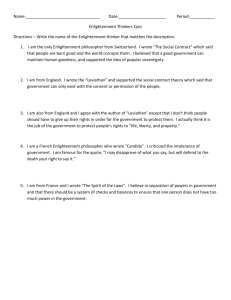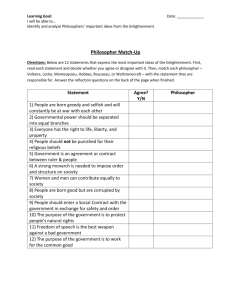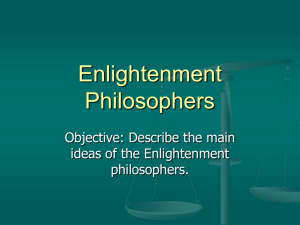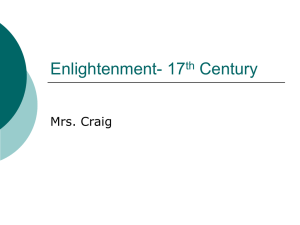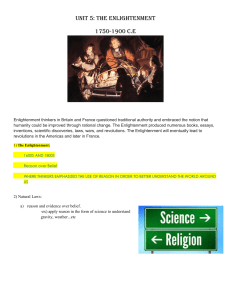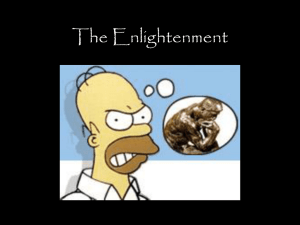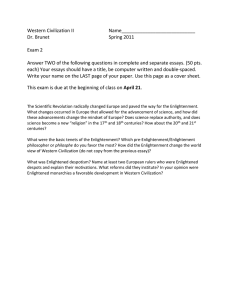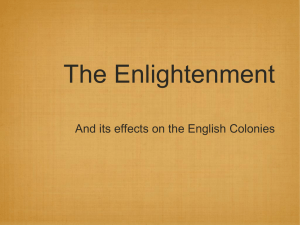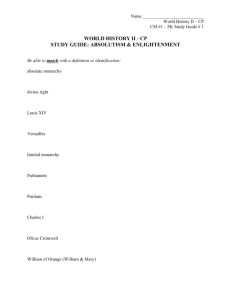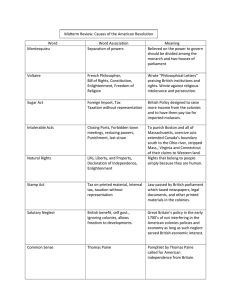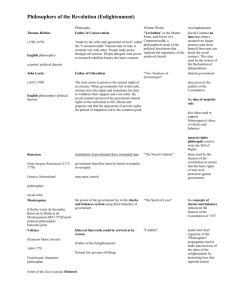Chapter 22 Vocabulary Bellringer: 3/19/2014
advertisement
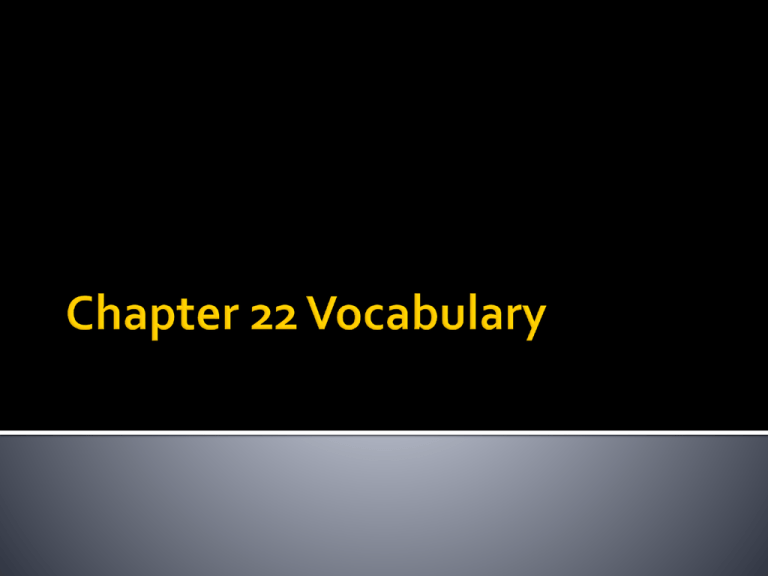
What is an enlightened despot? What who developed the vaccine? Who pioneered the use of the scientific method in chemistry? If you completed the homework from the other night, please put it in the tray. A ruler who supported Enlightenment ideas but did not give up power. Edward Jenner Robert Boyle Bellringer CNN Student News Current Events #4-#6 (20 minutes) Homework Review Vocabulary Review-Vocabulary Quiz (Changed to Friday, March 21, 2014) If time permits, Enlightenment projects Closure-Study for vocabulary test Scientific Revolution: A major change in European thought, starting in the mid-1500s, in which the study of the natural world began to be characterized by careful observation and the questioning of accepted beliefs. Geocentric theory-The theory that held that the earth was the center of the universe Heliocentric theory-The theory that the sun was the center of the universe. Galileo Galilei-he built a telescope to view the stars and planets; the Church tried him for heresy for his scientific ideas Scientific Method- a logical procedure for testing ideas; includes observation, hypothesis, testing, and conclusion Isaac Newton-English scientist; author of Principia; established principles of motion and defined forces of gravity. Enlightenment-An 18th Century intellectual movement that applied reason and the scientific method to laws to shape human action. Social contract-According to Thomas Hobbes, an agreement people make with gov’t. John Locke-Philosopher who believed people have three natural rights—life, liberty, and property. The purpose of gov’t is to protect these rights. Philosophes-French term for philosopher Voltaire-The greatest philosopher of the Enlightenment who fought for tolerance, reason, freedom of religion and speech Montesquieu-French philospher who wrote about separation of powers—dividing power among separate branches of government Rousseau-French philosopher who wrote about human freedom (he desired a society where all people where equal). Mary Wollstonecraft-Author who wrote about women’s right. Salon-social gathering for discussing ideas of enjoying art Baroque-Grand, ornate sytle Neoclassical-Simple style that borrowed ideas form classical Greece and Rome Enlightened despot-Ruler who supported Enlightenment ideas but did not give up power Catherine the Great- Russian ruler who took steps to reform and modernize Russia. Declaration of Independence- Document declaring American independence from Britain Thomas Jefferson- Author of the Declaration of Independence Checks and balances-System in which each branch of government checks, or limits, the power of the other branches Federal system- System of government in which power is divided between the national and state government Bill of Rights-First ten amendments to the U.S. Constitution
